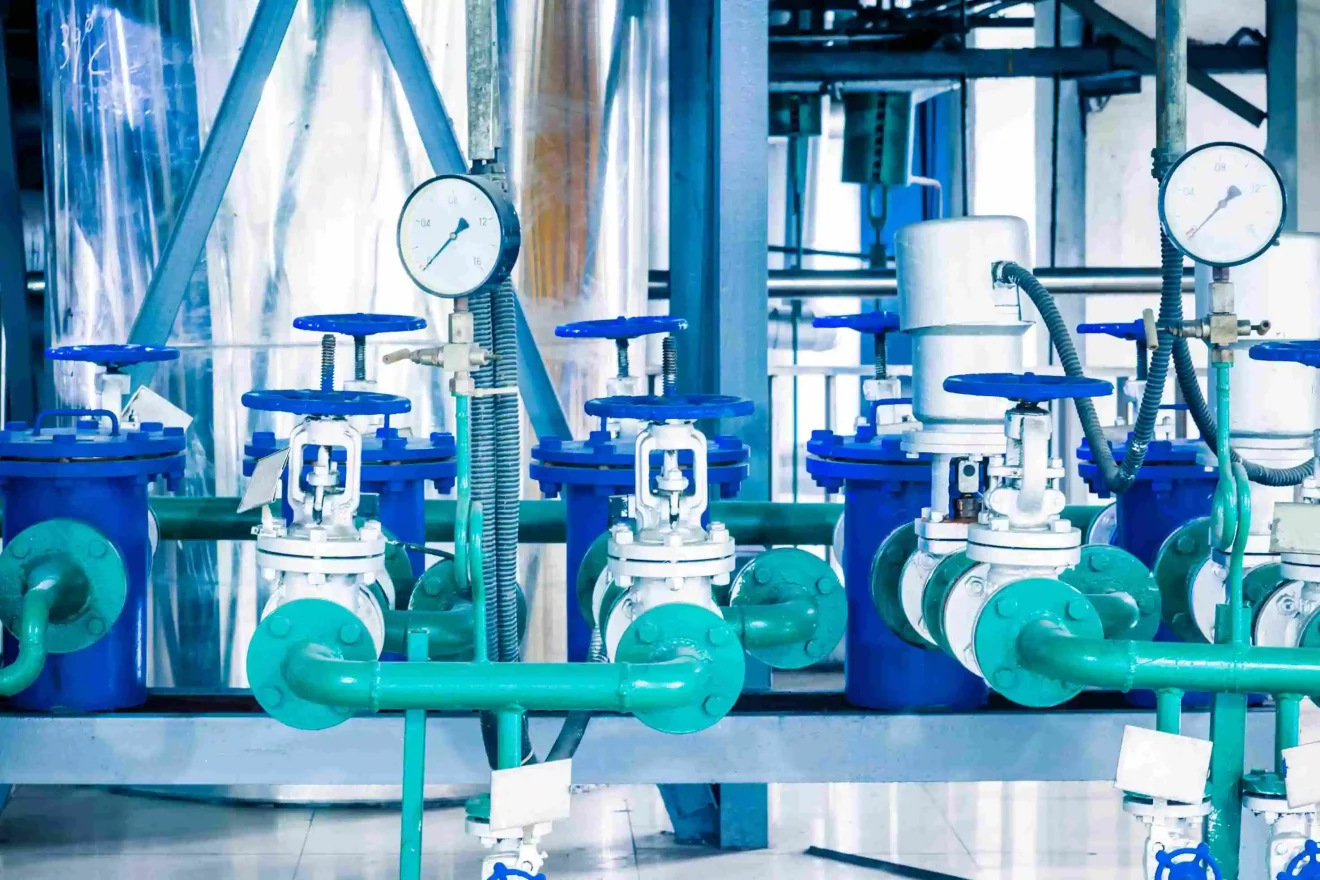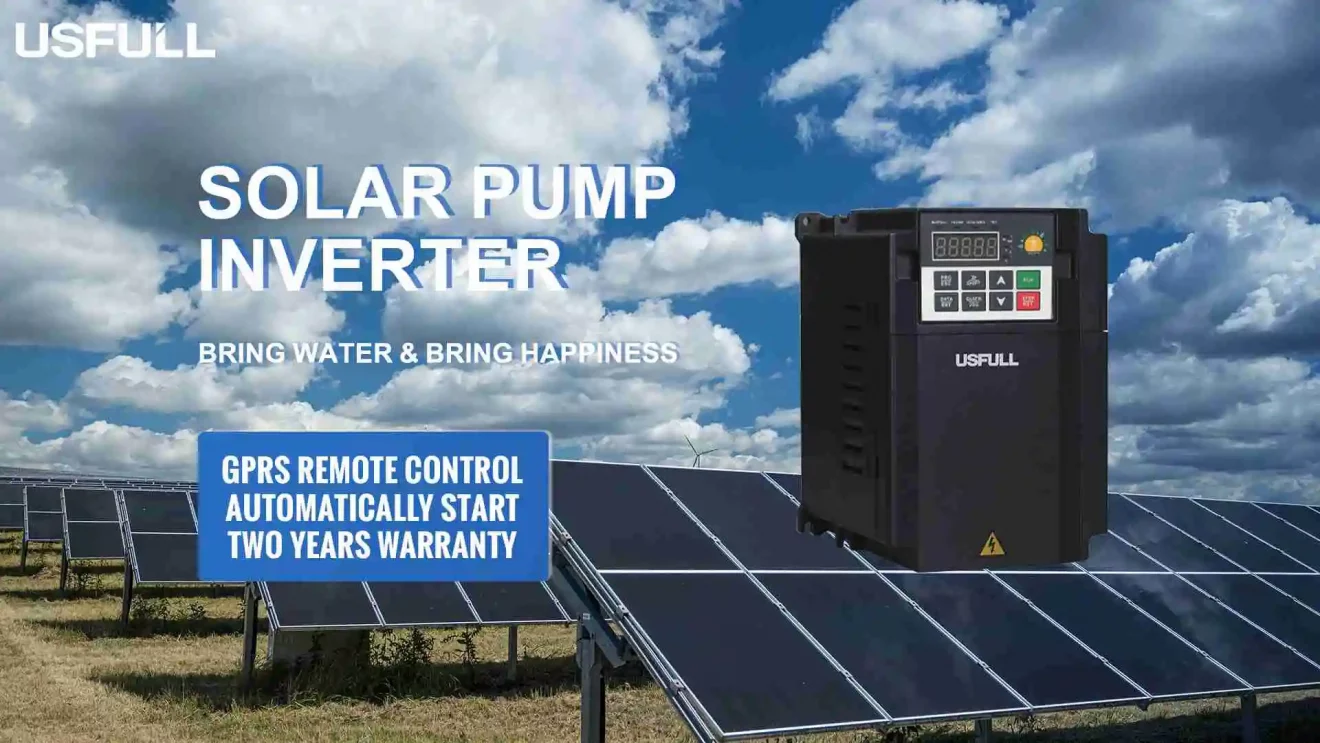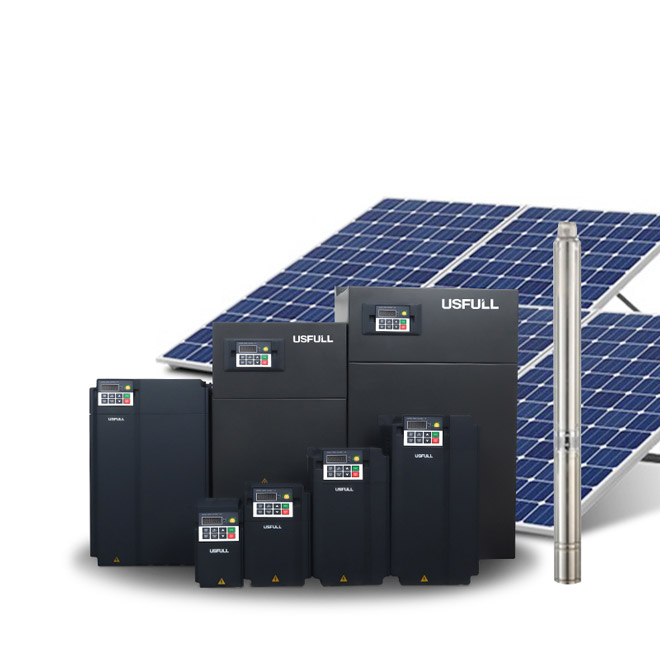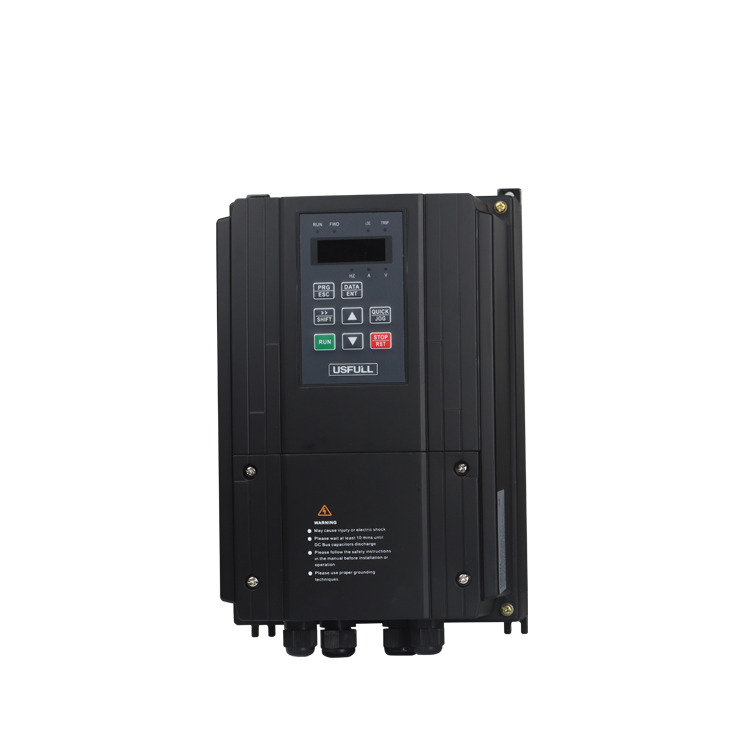In areas where conventional grid electricity is scarce or unreliable, the need for alternative energy sources to power essential equipment, like water pumps, becomes critical. Without the right inverter, your solar-powered water pump could underperform, leading to inefficiencies and a costly, unreliable system. This article will guide you through choosing the best solar inverter for your water pumping needs, ensuring you have the power to operate efficiently and sustainably.
A solar inverter designed for water pumps must be able to convert DC electricity from solar panels into AC electricity, making it essential to choose the right type. Learn which solar inverter works best for driving a water pump in different setups.
Choosing the right solar inverter is crucial to ensure your water pump operates efficiently. Let’s explore the best types of solar inverters for water pumping systems.

Inverseur de pompe solaire
A convertisseur de pompe solaire is a type of inverter specifically designed for driving water pumps using solar energy. Unlike traditional inverters, onduleurs pour pompes solaires are tailored to handle the variable input of electricity from solar panels, which fluctuates with the sun’s intensity. These inverters ensure that the DC power from the solar panels is efficiently converted into AC power, suitable for running water pumps.
The key benefit of onduleurs pour pompes solaires is their ability to regulate the power output to match the pump’s needs. This prevents overloading and ensures that the pump runs smoothly, even under variable sunlight conditions. Additionally, onduleurs pour pompes solaires come with integrated MPPT (Maximum Power Point Tracking) technology, which optimizes the energy harvest from your solar panels. The result is higher efficiency and consistent performance, particularly in off-grid locations where reliable power is crucial.

Solar On-Grid Inverter
A solar on-grid inverter is designed to be connected to the electrical grid. These inverters convert DC electricity from the solar panels into AC electricity, which is then fed into the grid or used for home consumption. While these inverters are perfect for general solar energy applications, they are not typically ideal for driving water pumps in remote locations, where grid power may be unavailable or unreliable.
In the context of water pumping, on-grid inverters are often used in systems where the grid is available as a backup. If there’s a surplus of energy, the power can be exported to the grid, and if there’s insufficient sunlight, the pump can draw power from the grid. However, if you need a purely solar-powered solution, an on-grid inverter may not be the best fit, as it requires an existing grid connection.
Solar Power Off-Grid Inverter
A solar power off-grid inverter is perfect for areas with no access to the grid. These inverters are designed to work independently, converting DC electricity from solar panels into AC power for appliances like water pumps. In off-grid applications, solar power off-grid inverters are often paired with battery storage systems to ensure the water pump continues running even during cloudy days or at night.
Off-grid solar inverters are ideal for rural areas, farms, or remote locations where grid electricity is unavailable. Their flexibility and ability to function without external power sources make them the go-to solution for solar-powered water pumps. These inverters are typically more robust and come with higher durability ratings, ensuring long-term, trouble-free performance in harsh conditions.
What Size Solar Pump Inverter is Needed to Run the Pump?
Les size of the solar pump inverter required depends on several factors, including the power requirements of the water pump, the solar panel system, and the location’s solar irradiance. In general, the inverter should match the power capacity of the pump to ensure efficient performance.
For example, a 1HP water pump would typically require an inverter that can handle at least 0.75 kW of power. However, it’s essential to consider factors like the starting surge of the pump, which may require an inverter with a higher surge rating than its continuous output. It’s also important to account for the voltage and current output of the solar panels to ensure compatibility. Consulting with a professional installer will help you determine the optimal inverter size for your system.
Conclusion
Choosing the right solar inverter for your water pump is crucial for ensuring efficient and reliable performance. Solar pump inverters are ideal for remote applications, while on-grid and off-grid inverters serve specific needs based on location and grid availability.



